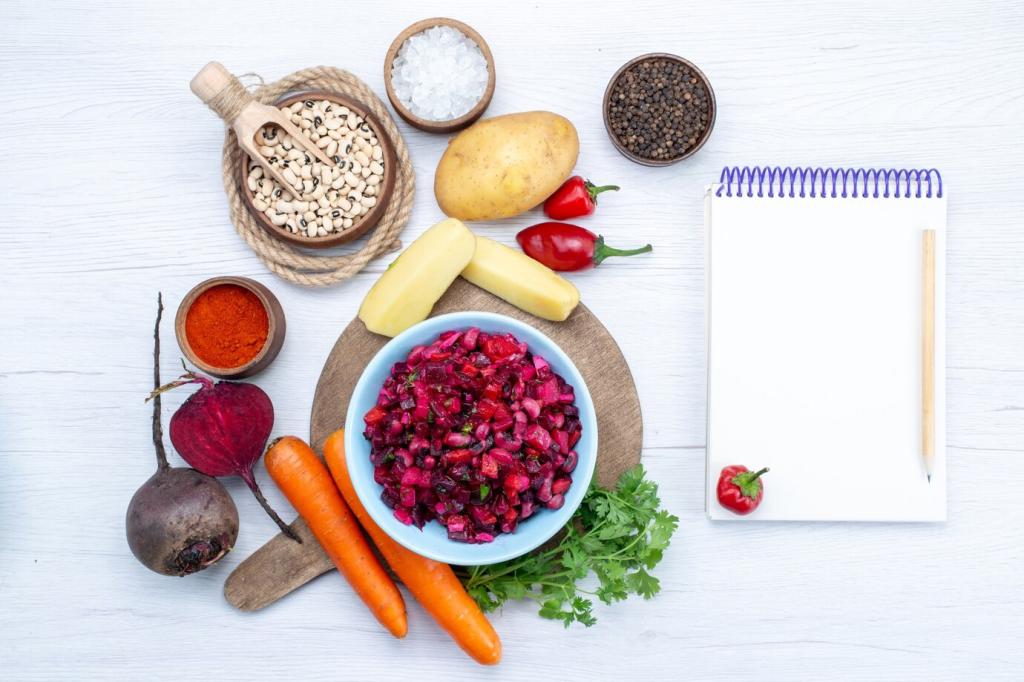Fueling Peak Performance
Why Timing Matters: The Science of Before and After
Starting sessions with adequate glycogen and steady blood glucose improves power output, pacing, and decision-making. Pre-workout meals rich in easy-to-digest carbohydrates reduce perceived exertion and help you hit splits even when training stress climbs unexpectedly.
Why Timing Matters: The Science of Before and After
Post-workout, your body is primed to repair. Consuming 20–40 grams of high-quality protein with 2–3 grams of leucine within three hours stimulates muscle protein synthesis, maintains lean mass, and supports long-term adaptation across both endurance and strength disciplines.


Building the Perfect Pre-Workout Plate
Carb-Forward, Fiber- and Fat-Smart
Use the 1–4 rule: 1–4 grams of carbs per kilogram of body weight, 1–4 hours before training, adjusting for session intensity. Keep fiber and fat modest to minimize gut distress while still protecting energy steadiness through challenging intervals or heavy lifts.
Protein for Priming Muscles
Adding 15–25 grams of protein pre-workout supplies amino acids during training and can reduce muscle breakdown. A yogurt, whey smoothie, or scrambled eggs pairs nicely with carbohydrate options and maintains comfort when the workout demands quick transitions and aggressive efforts.
Smart Ergogenics: Caffeine and Nitrates
Caffeine at 3–6 mg/kg, 45–60 minutes pre-workout, improves alertness and time-to-exhaustion. For endurance, beetroot juice providing 6–8 mmol nitrate two to three hours pre-session can enhance efficiency. Note individual tolerance, and comment with what timing works best for you.
Arrive Ready: Pre-Workout Fluids
Drink about 5–7 mL/kg of fluid three to four hours before training. If urine remains dark, sip another 3–5 mL/kg one to two hours out. Include sodium—especially in hot conditions—to support plasma volume, reduce cramping risk, and stabilize heart rate under load.
Rehydrating After the Final Rep
Post-workout, replace 125–150% of fluid lost, ideally with sodium to aid retention. A quick weigh-in before and after helps estimate sweat loss. Pair fluids with your recovery snack to accelerate glycogen restoration and stabilize mood as cortisol gradually drops.
Electrolyte Nuances for Heavy Sweaters
If you finish with salt-streaked clothing, experiment with 500–1,000 mg sodium per liter in your pre- and post-workout fluids. This approach often curbs headaches and rebound thirst, especially after intervals, double sessions, or long efforts in humid environments.
Post-Workout Recovery Fundamentals

Aim for roughly 0.3 grams of protein per kilogram of body weight within three hours post-workout. Choose high-leucine sources—whey, dairy, eggs, or soy—to trigger robust muscle protein synthesis and sustain recovery when training weeks stack heavy back-to-back.

With limited time, try a banana, a spoon of honey, and a small whey shake thirty minutes pre-workout. Post-workout, refuel with eggs on toast, berries, and milk. Sprinter Lena shaved tenths off her opener after adopting this consistent, calm routine.

Two hours pre-lift, choose rice, chicken, and roasted carrots for steady energy. Post-lift, a chocolate milk plus Greek yogurt parfait delivers protein and carbs quickly. Comment if you prefer savory or sweet after heavy squats—your feedback guides our next recipes.

Three hours pre-run, oatmeal with raisins, maple syrup, and a dash of peanut butter hits the spot while staying gentle. Post-run, blend a smoothie with banana, whey, yogurt, and oats, then follow with a rice bowl. Share your long-run breakfast traditions.

This is the heading
Lorem ipsum dolor sit amet, consectetur adipiscing elit. Ut elit tellus, luctus nec ullamcorper mattis, pulvinar dapibus leo.

This is the heading
Lorem ipsum dolor sit amet, consectetur adipiscing elit. Ut elit tellus, luctus nec ullamcorper mattis, pulvinar dapibus leo.

Different Sports, Different Needs
Endurance athletes benefit from larger pre-workout carbohydrate portions and aggressive post-workout replenishment after long or high-intensity sessions. Prioritize fluids and sodium, and consider nitrate strategies. Share your marathon or cycling fueling plan—we’ll feature reader blueprints next week.
Different Sports, Different Needs
Lifters and sprinters should center post-workout protein while still including carbs to support glycogen and subsequent sets. Creatine pairs well with post-workout carbs and protein. What’s your favorite recovery protein source? Comment, and we’ll crowdsource a list of easy, budget-friendly options.
